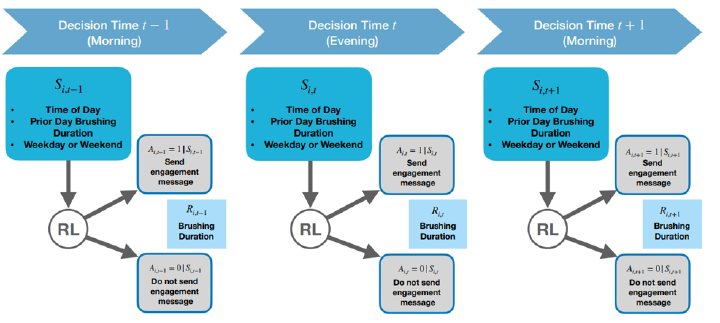Designing Reinforcement Learning Algorithms for Digital Interventions: Pre-Implementation Guidelines

Abstract
Reinforcement Learning (RL) is widely used in digital interventions, but designing effective RL algorithms presents significant challenges. Since RL models must be finalized before deployment, mistakes in the design process can lead to inefficiencies, poor adaptation, and high costs. This presentation introduces an extended PCS (Predictability, Computability, Stability) framework to address these challenges, refining its application for RL to enhance algorithm personalization, efficiency, and robustness. Predictability is redefined as personalization, computability incorporates real-world constraints like timely access to state and reward data, and stability ensures algorithmic consistency across dynamic environments. A case study on Oralytics, a digital oral health intervention, demonstrates the effectiveness of the extended PCS framework in RL design. The intervention leverages a contextual bandit algorithm with Bayesian Linear Regression (BLR), optimizing decision-making based on user engagement patterns. Key design considerations include decision timing, reward selection, computational constraints, and algorithm stability. The study found that BLR outperformed alternative models, larger cluster sizes enhanced learning efficiency, and environmental simulations required increased variability for better generalization. The results emphasize that PCS provides a structured methodology for RL-driven digital interventions, ensuring reliability while addressing real-world constraints such as user heterogeneity, computational limitations, and data variability. While the approach successfully guided RL design for Oralytics, further refinements are needed, particularly in expanding simulation environments and improving generalization to diverse populations. This work demonstrates that PCS can be a valuable tool for RL pre-implementation, enabling effective algorithm design in applied settings.